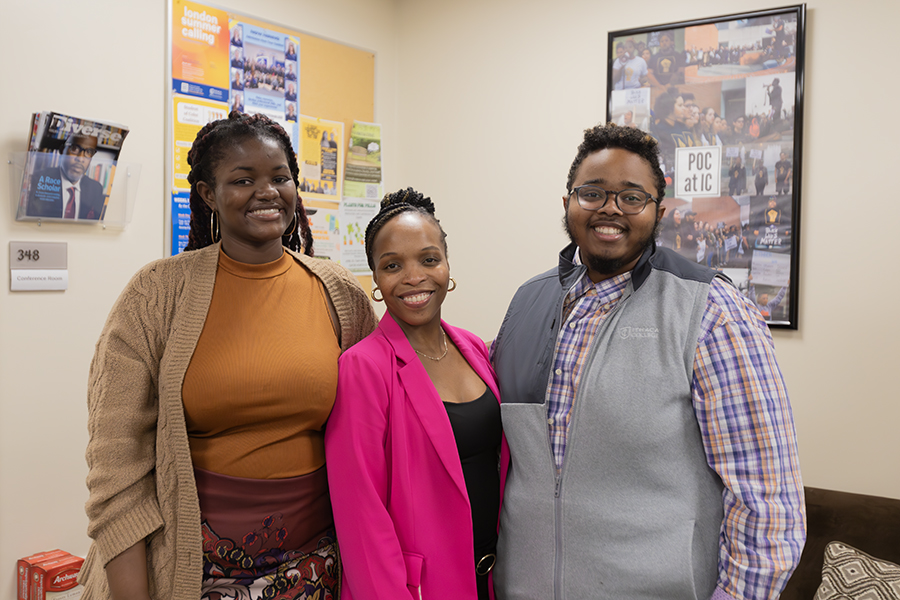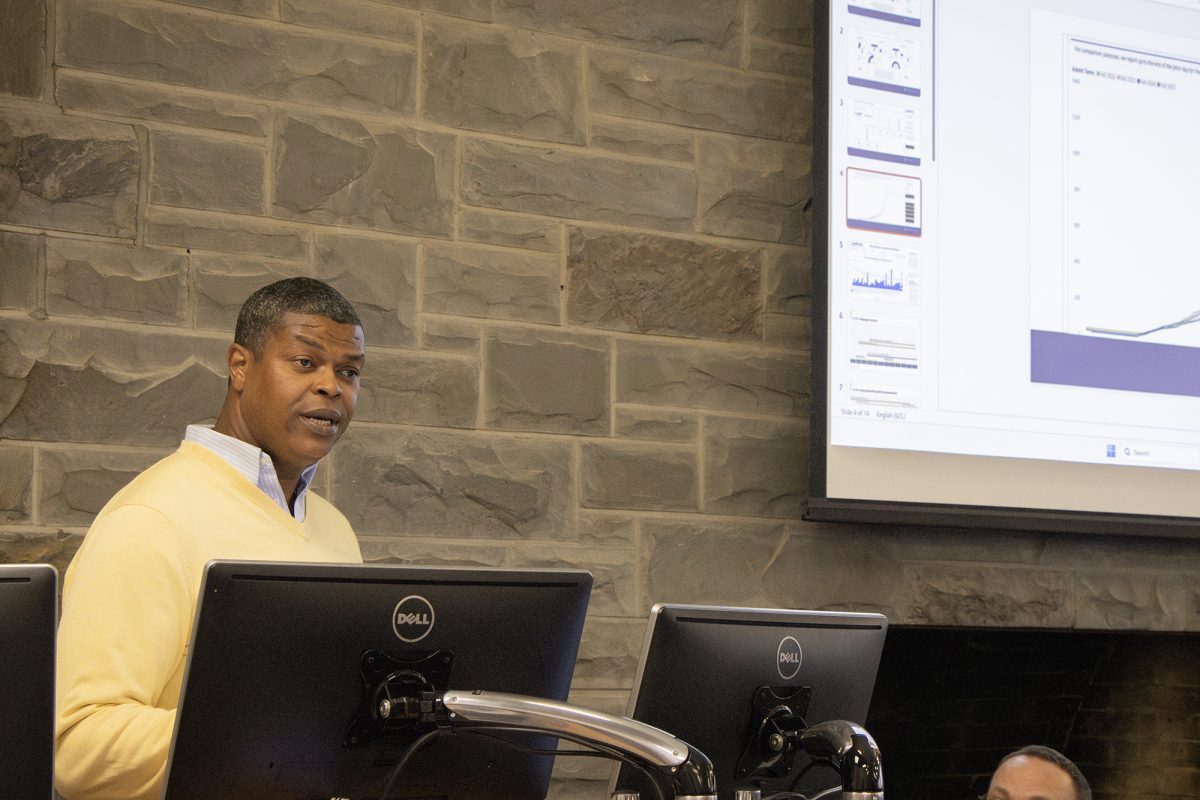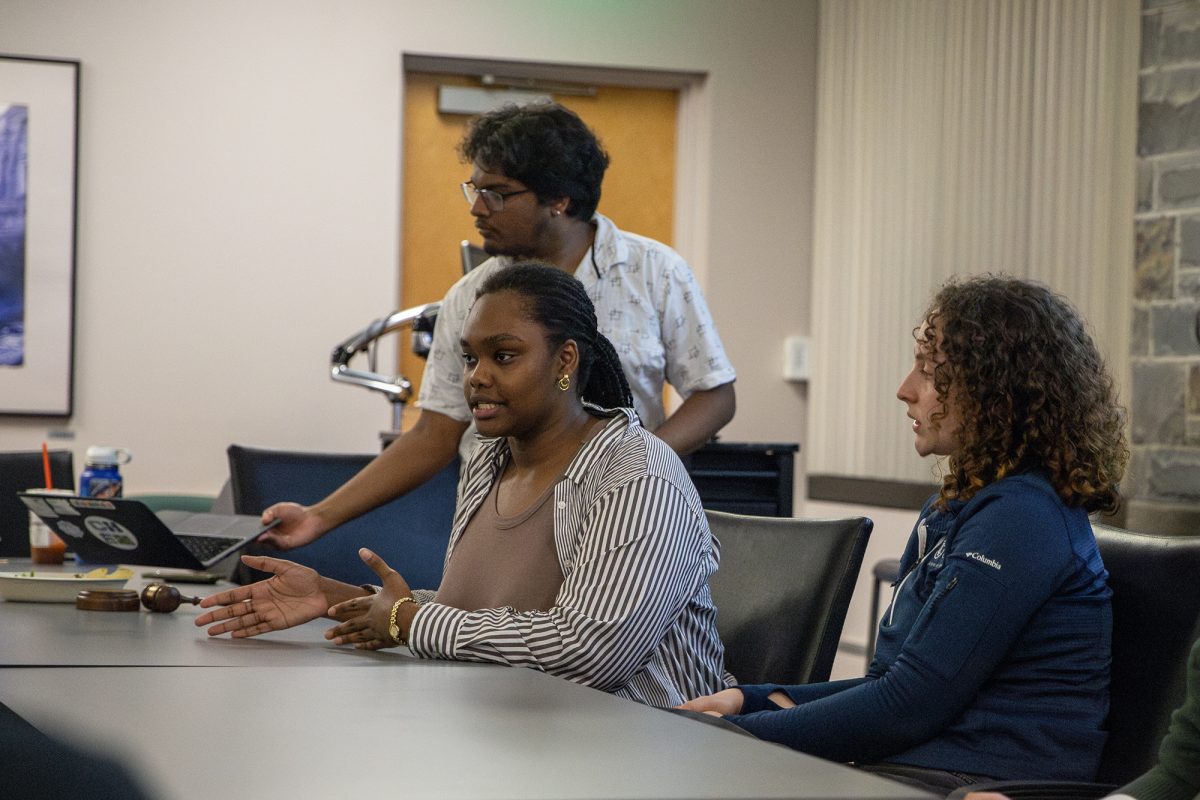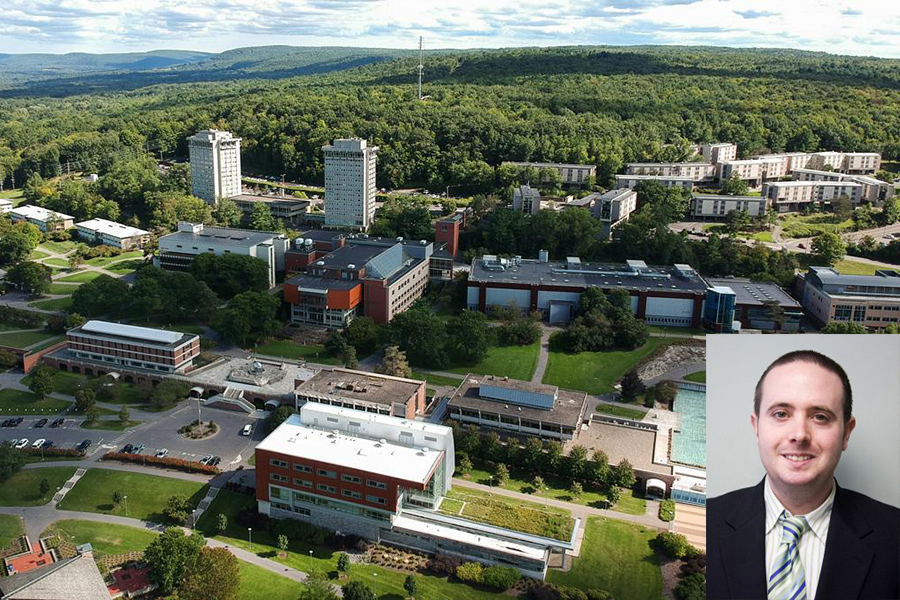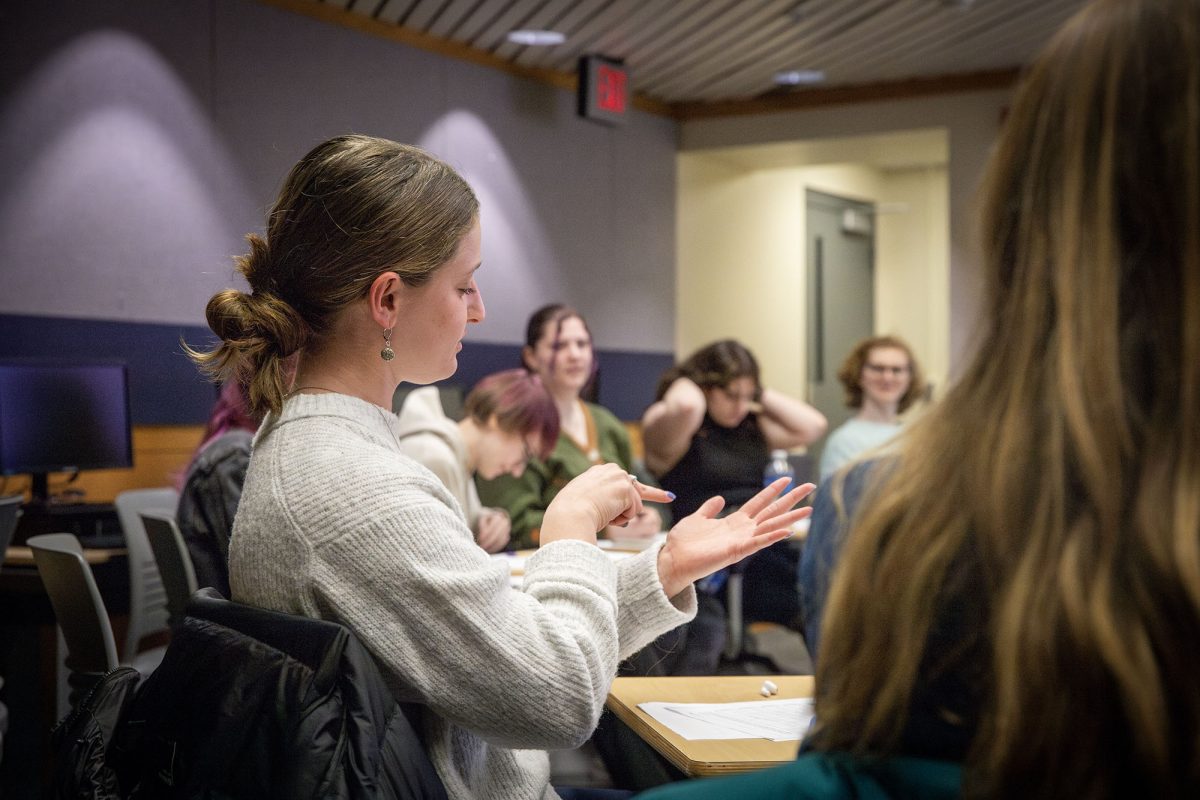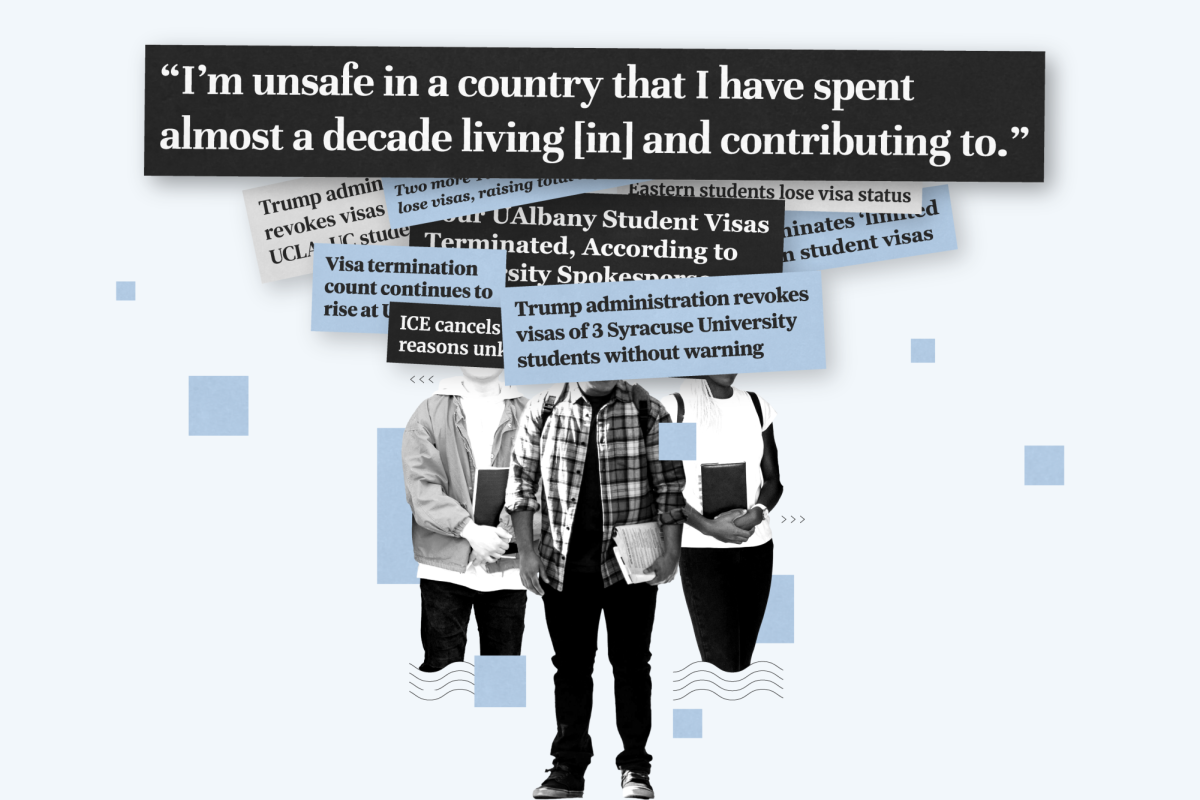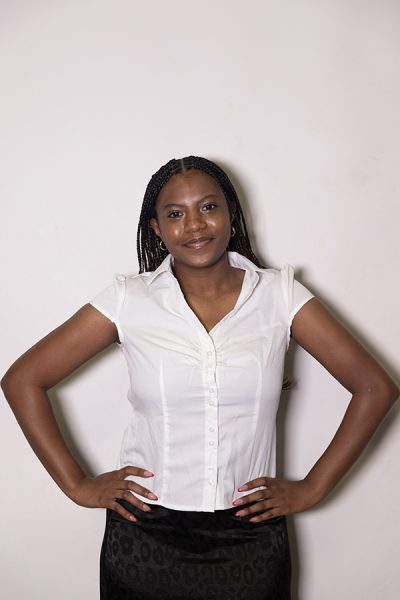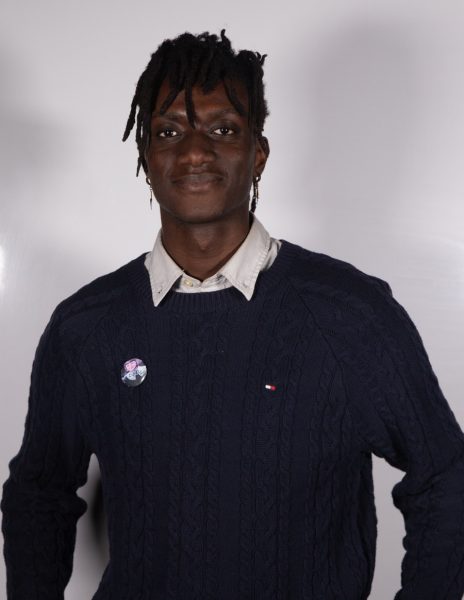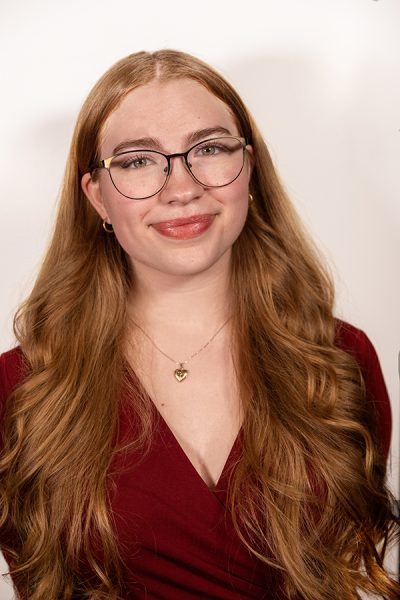Editor’s note: Jacquelyn Reaves is an MLK Scholar.
At the beginning of Spring 2024, the Ithaca College First-Generation and MLK Scholar Center merged with the BIPOC Unity Center to recognize the overlap with students who use both centers’ resources.
There was no formal announcement from the college about the merger but Cliff-Simon Vital, assistant director of the BIPOC Unity Center, said talks of the merger were initiated in Fall 2023. The merger was announced to MLK Scholars in a meeting Feb. 5.
“We have a lot of students that share similar identities,” Vital said. “It made more sense to remove the wall that had been imaginarily placed here separating our suite and create a more open system for both of us to collaborate within budgets, programming, student and staff resources.”
Bonnie Prunty, vice president of Student Affairs and Campus Life, said via email that information about the merger was shared in an open meeting with students who engage with the offices and there will be an official announcement to the campus community prior to spring break.
Approximately 21% of students at the college identify as BIPOC. The number of BIPOC students at the college has increased from about 13% in 2010. Approximately 15% of each incoming class identifies as a first-generation student.
Shadayvia Wallace, program director of the MLK Scholars and First-Gen Center, said the merger was a collaborative effort among herself, Vital, Prunty, Marsha Dawson, dean of students and interim director for the BIPOC Unity Center, and Luca Maurer, executive director of Student Equity, Inclusion, and Belonging.
“[The purpose was] trying to address the needs of the BIPOC Unity Center at the time [and] my needs as a one-woman office,” Wallace said.
Vital said the funding for the centers is not merged and the centers have two separate accounts for funding, but there are plans in the works for how funding may work in the future. Vital said that following the merger, the BIPOC Unity Center went from having an office of three to an office of four, a staff of seven to a staff of 10, and went from having 22 programming events a year to around 50.
Until 2021, the MLK Scholar and First-Gen programs were run independently. In August 2021, Wallace became the director of both programs. Wallace said that running the First-Gen and MLK Scholar program along with being involved with the BIPOC Unity Center was challenging.
“It felt like two separate programs that needed my attention at once,” Wallace said. “It was challenging at times. I would try to find ways to incorporate both [first-gen programming with MLK Scholars]. But sometimes, both programs had competing expectations and demands that were separate.”
Despite Wallace’s new responsibility as an Associate Director of the BIPOC Unity Center, she continues to oversee the admissions process for the MLK Scholarship.
“I will still be taking the lead on the admissions process,” Wallace said via email. “The pro-staff will be invited to participate as a committee if their time permits, but I presently have a committee that assists with that process alongside me.”
Vital said that when Angélica Carrington, former director of the BIPOC Unity Center, left in November, he and college leadership promised students that the resources provided in the center would not end.
“One of those key responsibilities is being a Title IX confidential resource and so when we were looking to see who else could create that support system, ultimately the decision came down that [Wallace] would be the person to support in that capacity,” Vital said.
Vital said no programming or student assistance was impacted by the merger.
“The biggest thing to reiterate is that [within our services] nothing has really changed, our services have stayed the same,” Vital said. “We still offer a lot of scholarships. I would say more student support hours now, more desk coverage and program support.”
Vital said that once a permanent director is found for the center, he is looking forward to more consistency within the center.
“I really hope that the person comes in and has the ability to be on board with the things we have put into place, but come in with the skills of organizational development to see what are the needs and what are the resources that we need,” Vital said. “When that person comes in, their perspectives, their attitudes [and] their realities are going to change the day-to-day operations of the office.”
Vital said the center has been blocking off time when available to discuss administrative procedures in the center. Vital said the administrative assistant position was posted Feb. 26 and the center is waiting to receive applicants before the hiring process begins.
“When it comes to administrative processes for the Ithaca achievement program, that falls under me,” Vital said. “Anything [with the MLK Scholars] is under [Wallace]. I am now in charge of supervising all the student staff here. [Wallace] is focusing on supporting the professional administrative coordinator that we will hire soon.”
Vital said one of the biggest changes to the centers was with the administrative student staff who he said are now called BIPOC Unity Center peer educators.
Junior Liguori Flanagan, peer educator at the BIPOC Unity Center, said that after the merger, he did not see a big difference in the duties that come with his position.
“Ever since the [merger, I] have gotten adjusted to sharing [tasks] with other people as well as just taking on various tasks, but it has been a smooth adjustment,” Flanagan said.
Flanagan said that while it would be nice to see an increase in how much peer educators are paid, minimum wage is the standard for the college regardless of the job.
“Getting minimum wage out of students is literally college,” Flanagan said. “I do feel like we deserve an extra dollar just because we are taking on the other offices tasks [and] all the work that we do, because we are literally working to improve [the] student community on campus.”
Flanagan said that following the merger, he has noticed an increase in productivity around the office.
“[There are] more hands to work on things,” Flanagan said. “It’s beneficial, being able to use the whole office space and being able to have more pro staff on board. … The merge definitely helped [us be more efficient].”
Senior Ashanti Ford said the difference in her work before the merger and after the merger is an added focus on MLK and First-Gen programming. Ford said the merger was a good decision and made sense considering the goals of each center.
“I get to have more insights on [issues] that concern me because I’m also a first-gen student,” Ford said. “With our office, we talk a lot about intersectionality. … I [now] also understand how it is to be a BIPOC student and a first-gen student and what [that] looks like being under one office.”
Some BIPOC students, like first-year student Lucas Miller, who frequently interact with the BIPOC Unity Center were not aware of the merger between the two centers.
Miller said one of his biggest concerns with the merger is a lack of focused programming for each center’s target demographic.
“I think that the school should show enough support to their exclusive centers and be able to [provide enough resources to each center separately],” Miller said. “At the same time, I can see how the [merger between the] First-Gen Center and the BIPOC Center provide new opportunities for [the student body].”
Wallace said that since she is now under the BIPOC Unity Center, there will be more opportunities for her constituents to interact with the community outside of the college as well.
Vital said that being able to create a unified resource for students through the merger has allowed the BIPOC Unity Center to earn its name.
“It’s funny we called ourselves the BIPOC Unity Center but didn’t really do a lot of unification,” Vital said. “Now I feel like our name actually means something on campus. … You can come in here and it’s a one-stop-shop instead of [different centers].”


